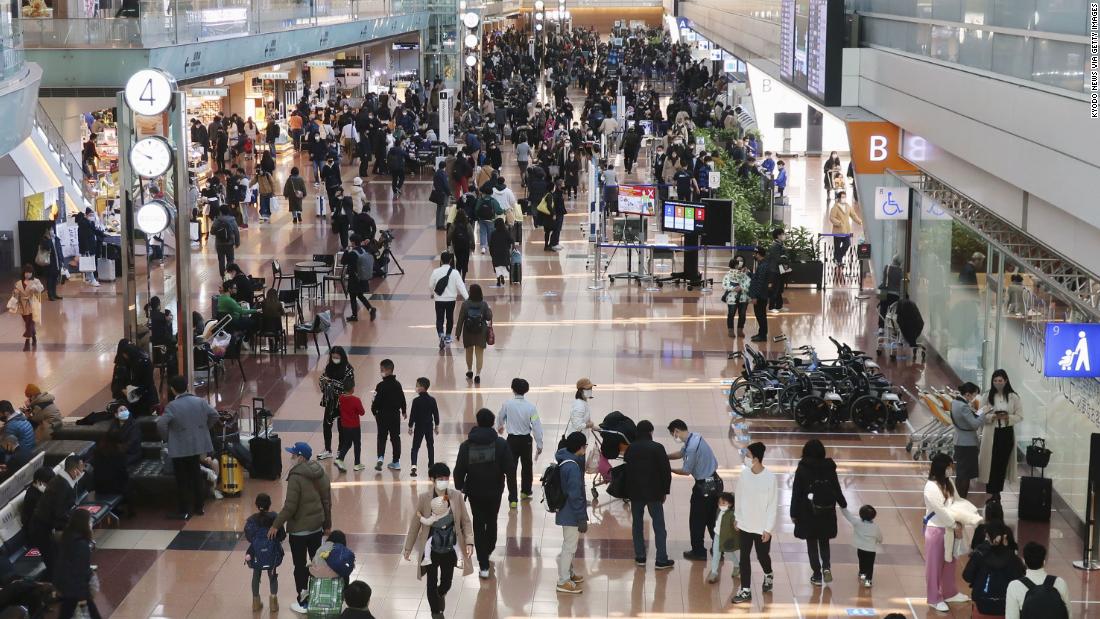Japanese citizens and foreign residents can still enter, but they’re required to self-quarantine for 14 days, according to Japan’s public broadcaster, NHK.
The move came after the Tokyo metropolitan government on Saturday confirmed two new cases of Covid-19 variant involving people who recently returned from the UK.
The two new cases were the first to be discovered outside of airport quarantine in the country.
On Friday, five other travelers from Britain were detected with the variant at Japan’s international airports.
The new coronavirus variant is said to have originated in the UK and be potentially more transmissible. Since its discovery, more than 40 countries have restricted travel from the UK, and in some cases, travel from other countries that have documented cases with the variant.
Beginning Monday, for instance, the US will require all travelers from the UK to receive a negative Covid-19 test within 72 hours of boarding a flight to the US. Passengers will also be required to provide documentation of their laboratory results.
Restrictions of varying degrees have been announced by countries like Denmark, Ecuador, Greece, Portugal, Spain and Ukraine. Still others have banned travel or suspended flights from the UK, like Argentina, Belgium, Brazil, Canada, China, Colombia, Germany, India, Italy, the Netherlands, Russia and Spain.
Others have extended travel bans or restrictions to other countries where the variant has been detected, like Denmark, the Netherlands and Australia. A number of countries have also imposed restrictions on travel from South Africa, where a different variant has been reported, according to the World Health Organization’s Maria van Kerkhove.
This article was originally published by Cnn.com. Read the original article here.

